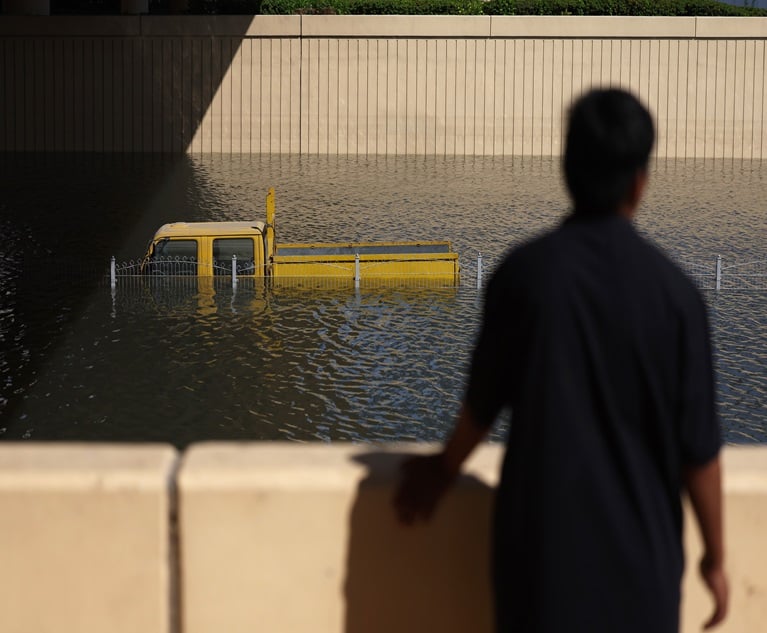Early August saw major flooding in New Orleans, and other partsof the country, such as Missouri and Arkansas, are also dealingwith flooding from heavy rains and swollen rivers. As driversnavigated flooded streets, many motor vehicles were underwater,along with yards, homes and businesses.
|Related: Protections for La. policyholders impacted by Aug.2016 flooding extended
|Louisiana InsuranceCommissioner Jim Donelon and Attorney General Jeff Landry haveprovided guidance to victims of the flooding event, urging them tobe proactive vehicle consumers. Although targeted to Louisianacitizens, their advice is applicable to anyone whose car wasflooded or damaged by water in any location. It’s especiallyimportant for used car buyers in areas subject to flooding to takenote as well.
|“In the aftermath of a natural disaster, it isimportant for consumers to be aware of the warning signs of a flooddamaged vehicle,” said Landry. “If you are in the market to buy aused vehicle — be sure to inspect it carefully, looking at hiddenparts or crevices to check for flood residue, which are indicatorsof the vehicle having water damage. My office will not stand forfraud, especially following this flooding event that has negativelyaffected so many in New Orleans.”
|“Even as we are preparing for the peak of hurricane season, theflooding in New Orleans this weekend is a sobering reminder thatbad weather can happen at any time,” said Donelon. “If anyoneaffected by the flooding has questions or concerns about theirinsurance policies or how to file a claim, I urge them to contactthe Department. We have staff standing by to answer questions asour citizens start the process of cleaning up and taking stock ofdamage.”
|Related: The current state of floodinsurance
|Recognizing a flood-damaged vehicle
Attorney General Landry offers the following tips on how torecognize a flood-damaged vehicle:
- Be conscious of the smell inside the vehicle.A heavy aroma of cleaners and disinfectants could be a sign thatsomeone's trying to mask a mold or odor problem.
- Pull up the carpet in the trunk of the vehicle andinspect under the seats. Also look for fogging or moisturein the interior lights, exterior lights and dashboard.
- Be on the lookout for dirt and rust in hard to reachspots, such as the glove compartment, dashboard, upperdoor hinges, trunk latches and screws on the console.
- Have a mechanic you trust inspect the vehicle’smechanical and electrical components, and systems thatcontain fluids for water contamination. Check the transmissionfluid and oil. If fluids appear murky and grayish, that is a goodindication the vehicle has been flooded.
- Know the difference between “salvage title” and “floodtitle.” A salvage title means the vehicle was declared atotal loss by an insurance company because of a serious accident orsome other problems. A flood title means the vehicle has damagefrom sitting in water deep enough to fill the engine compartment.The title status is part of a vehicle history report.
- Obtain a vehicle history report. The National Insurance Crime Bureau’s freedatabase includes flood damage and other information.
Related: Beware of flood-damaged vehicles resold as in goodcondition, warns NICB
|Filing a claim?
Insurance Commissioner Donelon offers the following tips on filinga claim:
- Contact your insurance agent as soon aspossible. Have your policy readily available and find outwhether the damage is covered under the terms of your policy andhow long you have to file a claim. If you have trouble with thatprocess, contact your local Department of Insurance forassistance.
- Your automobile insurance policies cover flooding ifyou have purchased comprehensive coverage. If you onlyhave liability coverage, your vehicle is not covered forflooding.
- Minimize your losses and document the damage.Take photos of any damage and then make whatever reasonabletemporary repairs are needed.
- Remember that flooding is generally not covered understandard homeowners and renters insurance policies. Floodinsurance is a separate policy through FEMA’s NationalFlood Insurance Program and some private insurers.
- Ask for identification from any agents, adjusters orcontractors. Do not sign any contracts for repairs untilyou have been instructed to do so by your adjuster and you havecalled the Better Business Bureau in your area.
- Don’t be afraid to file a claim. Storms areconsidered “Acts of God” or “Acts of Nature” and an insurancecompany cannot cancel, refuse to renew or increase the amount of apremium on a homeowners policy based solely on this type ofincident.
If you suspect a dealer is knowingly selling a flood-damaged orsalvaged vehicle as being in good-condition, please contact yourlocal law enforcement agency and state Consumer Protection office.And if you were affected by flooding and believe your insurancepolicy is not being properly honored, you can file a complaint withyour state’s insurance commissioner.
|Related: 6 tips for flood survivors on avoiding fraud andother scams
Want to continue reading?
Become a Free PropertyCasualty360 Digital Reader
Your access to unlimited PropertyCasualty360 content isn’t changing.
Once you are an ALM digital member, you’ll receive:
- All PropertyCasualty360.com news coverage, best practices, and in-depth analysis.
- Educational webcasts, resources from industry leaders, and informative newsletters.
- Other award-winning websites including BenefitsPRO.com and ThinkAdvisor.com.
Already have an account? Sign In
© 2024 ALM Global, LLC, All Rights Reserved. Request academic re-use from www.copyright.com. All other uses, submit a request to [email protected]. For more information visit Asset & Logo Licensing.








